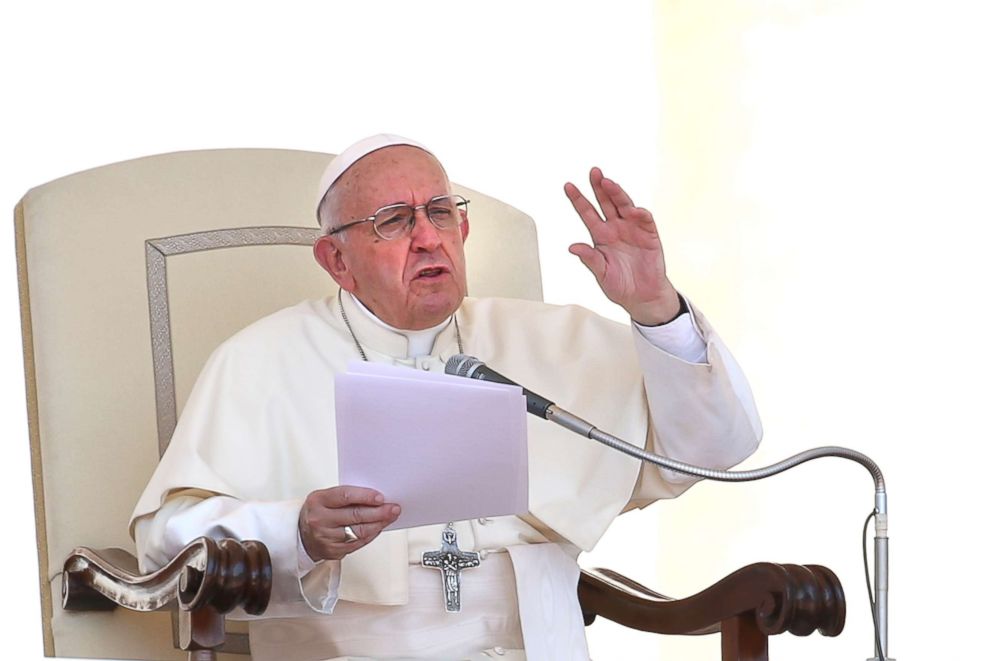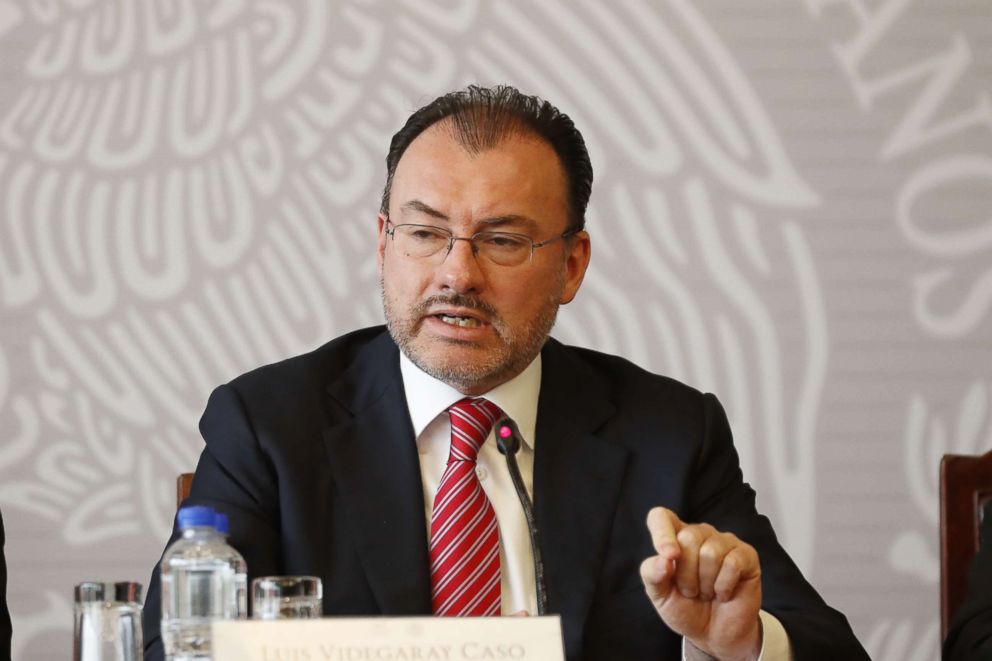Global outcry from US allies grows against Trump border policy
The president said Wednesday that he would act to end the family separations.
As the Trump administration defends its "zero-tolerance" border policy that has caused immigrant children to be separated from their parents, the international outrage has grown increasingly loud, from key U.S. allies to regional partners to Pope Francis.
So far, however, the administration has dismissed questions about the division between the U.S. and these allies, but amid the growing domestic and international criticism, President Donald Trump said Wednesday he would sign an executive order that would stop the separations practice and "keep families together."
The Trump administration began arresting and criminally charging all migrants who crossed the U.S.-Mexican border illegally in May, which has meant that parents traveling with children are held for prosecution in federal jails while the children are sent to separate detention facilities.
Some of the sharpest words against the policy have come from America's oldest allies in Europe. British Prime Minister Theresa May, who has been hesitant to criticize President Trump and will welcome him next month on his first visit to the United Kingdom as president, blasted the administration Wednesday.
"The pictures of children being held in what appear to be cages are deeply disturbing. This is wrong. This is not something that we agree with. This is not the United Kingdom's approach," she told members of Parliament. May added that she will make her disagreement with Trump clear to him during that July visit: "When we have those discussions and we disagree with them, we say so."
After saying he would not "play politics" on the issue and skipping questions in the House of Commons earlier in the week, Canadian Prime Minister Justin Trudeau added his condemnation on Tuesday, telling reporters, "What's going on in the United States is wrong. I can't imagine what the families living through this are enduring. Obviously, this is not the way we do things in Canada." Trump and Trudeau have had a rocky relationship lately, after Trump accused him of lying and battled him over trade and new U.S. tariffs on Canada.
Despite the close ties between French President Emmanuel Macron and Trump, a French government spokesperson went perhaps the furthest on Monday with the sharpest words, telling France 2 television network, "We do not share the same model of civilization. Clearly, we don’t share certain values."

Other international voices have weighed in as well. Pope Francis, who has criticized Trump for his rhetoric on immigrants before, told Reuters Sunday he supported the U.S. Conference of Bishops, who said in a statement earlier this month that the policy is "contrary to our Catholic values" and "immoral."
"It's not easy, but populism is not the solution," Pope Francis added, saying populists like Trump were "creating psychosis" over immigration.
At the United Nations Human Rights Council's opening session in Geneva Monday, the body's High Commissioner Zeid Ra’ad Al Hussein blasted the U.S. for its "unconscionable" immigration policy, calling it "government-sanctioned child abuse." Pompeo and U.S. Ambassador to the U.N. Nikki Haley announced Tuesday that the U.S. was withdrawing from the Human Rights Council, although State Department officials denied that it was in response to Al Hussein's comments.
Closer to home, the countries from which the majority of these migrants come also spoke out to condemn the policy and demand the Trump administration treat them with dignity.

Mexico took the rare step of filing complaints with the U.N. and the Organization of American States's Inter-American Human Rights System. Foreign Secretary Luis Videgaray held a press conference Tuesday to denounce the "inhumane and cruel" policy and demand the U.S. "reconsider this policy and give priority to the well-being and rights of these boys and girls, regardless of their nationality and immigration status."
Videgaray spoke to Secretary of State Mike Pompeo to communicate his opposition directly, State Department spokesperson Heather Nauert confirmed to ABC News.
The majority of the children separated have come from the Central American countries Guatemala, El Salvador, and Honduras, and their governments also issued statements against the U.S. policy.
The Salvadoran government issued a statement Monday to expressed "its concern," especially that minors were being "exposed... to extremely adverse conditions, which will surely have consequences for their physical health and psychosocial development in the long term."
"The Salvadoran Government makes a vehement appeal to the authorities of the United States Government to discontinue the separation of families," the statement said, calling the practice "a violation of human rights."
The Guatemalan Ministry of Foreign Affairs sent a letter on Monday to Secretary Pompeo to change the policy, it said Tuesday, telling ABC News that it "laments, condemns and rejects the immigration policy promoted by the United States Government, considering that it violates human rights and destroys family unity."
When Vice President Mike Pence visits next week, Guatemalan officials will raise the issue with him directly, the ministry added.
When asked about the list of U.S. allies and partners who have condemned the policy, the State Department deferred questions on the policy to the Department of Homeland Security, which crafted and implemented it and is in charge of U.S. border protection.
"I can just tell you that it is a challenge that is shared not just in the United States, but it's a challenge that's shared by many countries -- irregular migration continues to be an issue that many countries struggle to deal with. Beyond that, the specifics of this policy, I'd have to refer you to the Department of Homeland Security," spokesperson Heather Nauert said repeatedly on Tuesday.
But when pressed on the diplomatic fall-out, she said, "I get what you're trying to do. I'm not going to go there. I just don't have anything further for you on that."




